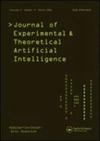Brazilian Forest Dataset: A new dataset to model local biodiversity
IF 1.7
4区 计算机科学
Q3 COMPUTER SCIENCE, ARTIFICIAL INTELLIGENCE
Journal of Experimental & Theoretical Artificial Intelligence
Pub Date : 2021-01-31
DOI:10.1080/0952813X.2021.1871972
引用次数: 1
Abstract
ABSTRACT The Intergovernmental Panel on Climate Change and the Intergovernmental Science-Policy Platform on Biodiversity and Ecosystem Services have emphasised unequivocal evidences about the impact of human actions on climate and biodiversity at alarming rates. In Brazilian terms, 2019 has been marked by controversial discussions among politicians and environmentalists, leading to misinformation and misinterpretations that clearly motivate the continuous collection and scientific analysis of data to support sustainable solutions. Aiming at dealing with this issue, this manuscript brings two contributions: (i) the creation of the Brazilian Forest Dataset, including Brazilian seed plants, Fraction of Absorbed Photosynthetically Active Radiation, meteorological and geographical data composing 8,482 attributes to model and predict 20 vegetation types; and (ii) the feasibility analysis on modelling this dataset in light of supervised machine learning algorithms, so we devise confident results on the Brazilian biodiversity. Experimental results confirm Random Forest and Support Vector Machines successfully adjust models, enabling researchers to predict the occurrence of specific types of vegetation in different regions of Brazil as well as analyse how the prediction accuracy changes along time after the collection of new data. Our contributions bring important tools to support the study on the evolution of the Brazilian biodiversity.巴西森林数据集:一个模拟当地生物多样性的新数据集
政府间气候变化专门委员会和政府间生物多样性和生态系统服务科学政策平台强调,人类活动对气候和生物多样性的影响正以惊人的速度增长。用巴西的话说,2019年是政治家和环保主义者之间有争议的讨论的一年,导致了错误的信息和误解,这显然激励了持续收集和科学分析数据,以支持可持续的解决方案。针对这一问题,本文做出了两方面的贡献:(1)建立了巴西森林数据集,包括巴西种子植物、吸收光合有效辐射的比例、气象和地理数据,构成8,482个属性,用于模拟和预测20种植被类型;(ii)根据监督机器学习算法对该数据集建模的可行性分析,因此我们设计了关于巴西生物多样性的可靠结果。实验结果证实,Random Forest和Support Vector Machines成功地调整了模型,使研究人员能够预测巴西不同地区特定类型植被的发生情况,并分析新数据收集后预测精度随时间的变化情况。我们的贡献为支持巴西生物多样性进化的研究提供了重要的工具。
本文章由计算机程序翻译,如有差异,请以英文原文为准。
求助全文
约1分钟内获得全文
求助全文
来源期刊
CiteScore
6.10
自引率
4.50%
发文量
89
审稿时长
>12 weeks
期刊介绍:
Journal of Experimental & Theoretical Artificial Intelligence (JETAI) is a world leading journal dedicated to publishing high quality, rigorously reviewed, original papers in artificial intelligence (AI) research.
The journal features work in all subfields of AI research and accepts both theoretical and applied research. Topics covered include, but are not limited to, the following:
• cognitive science
• games
• learning
• knowledge representation
• memory and neural system modelling
• perception
• problem-solving

 求助内容:
求助内容: 应助结果提醒方式:
应助结果提醒方式:


